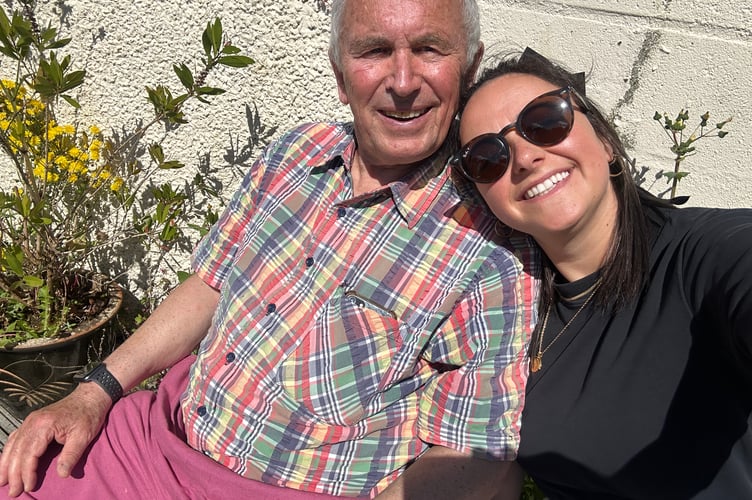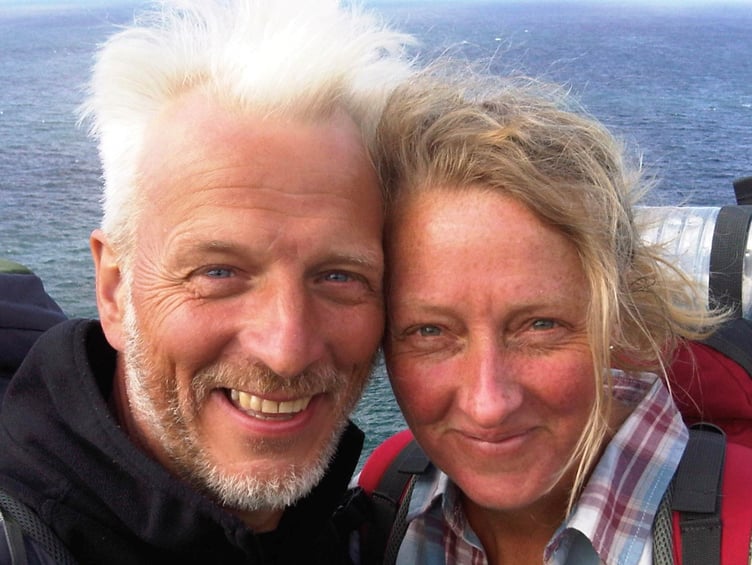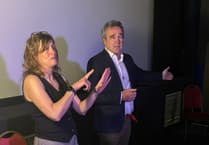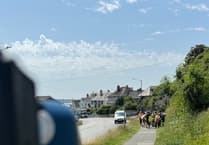ASK anyone to name a high-profile person living with from Parkinson’s disease, and you’ll be spoilt for choice: Michael J Fox, Jeremy Paxman, Billy Connolly, Muhammad Ali, Ozzy Osborne – the list goes on.
But have you ever heard of progressive supranuclear palsy (PSP), or corticobasal degeneration (CBD)? These debilitating neurological conditions, often referred to as Parkinsons+, are less commonly recognised — even within the medical profession — and have few well-known faces to fight for their cause.
A new support group meets at Truro Rugby Club on Thursday, October 17. The Devon and Cornwall branch of the PSP Association (PSPA) aims to help patients and their carers, while demystifying the twin conditions for the wider public.
Both are caused by a build-up of a protein called tau in the brain, and symptoms can start subtly — for example, loss of balance and difficulty brushing teeth. Individually, they are easy to dismiss, blame on the ageing process or misdiagnose; seen in the round, they are the jigsaw pieces that add up to a crippling illness that at its worst can involve incontinence and difficulty swallowing.
Around five in 100,000 people, largely aged over 60, are affected by PSP and CBD and experience rapid disability over around six years — falls are common. While CBD tends to affect one side of the body, and often starts with a loss of fine motor skills and dexterity, PSP is more global, and is often picked up by opticians due to limitations in eye movement.
Support group members include Raynor Winn, author of The Salt Path and its sequels, and husband Moth, who has been living with CBD for a decade. “People are looking for a simplified form they can relate to like a person — then they understand it only too well,” Raynor told me at the inaugural meeting of the group, at Gorse Bakery, Lanteague between Truro and Newquay.
Thanks to the immense success of her work, Moth fits that bill. While the couple are based in West Cornwall, they rose to fame after walking the South West Coast Path with just a tent for shelter, having lost their home in 2013 following a bad business deal.
Just before they set off, Moth was diagnosed with CBD. Symptoms started with pain in his left shoulder that progressed into pins and needles in his left hand, leading to less fine motor movement and eventually affecting his gait. Lockdown saw the addition of memory loss, eye movement problems and dizziness.
Many of these lessened considerably during long-distance walks — but, says Raynor: “It’s not an illness that goes away. The walks seem to control some of the symptoms, but they come back when we stop. Moth gets very tired, and that exhaustion feeds into every part of life. We never know if this long walk will make a difference, or if we are past that stage.”
While Raynor’s books are celebrated for showing triumph in the face of adversity, they are generally placed on the nature or travel shelves of bookshops, while media coverage rarely touches upon the detail of Moth’s illness. “When you start describing what it actually is, it makes people feel uncomfortable,” says Raynor. “It’s a destructive illness, and it’s complicated.”
She added: “A support network is vital. To be able to walk into a room and talk to other people who understand without explanation is fundamental to how you cope with it. If you feel like you’re the only one on the planet going through it, that’s a very lonely place to be.”
That’s where the Devon and Cornwall branch of the PSPA comes in. It’s chaired by volunteer Florence Bate, whose father Richard was diagnosed with PSP. “What has really shone through for me is how we are creating a community for people who have not had that support network,” says Florence.

“We’ve had a good number at each one, and are able to share stories, frustrations and advice on matters including travel insurance, for example. We’re also making sure PSP and CBD are being talked about, including in medical settings, to ensure professionals are aware of the disease and talk to each other about it.”
PSPA trustee Dr Boyd Ghosh sees a PSP case every week as a specialist with a catchment area of around five-million people including Southampton. In contrast, he estimates most UK GPs will only see one case during a career, if that, adding that it’s not unusual for it to be misdiagnosed as Alzheimer’s, Parkinson’s, MND and CJD.
Boyd is passionate about improving diagnosis and provision of care nationwide. “The PSPA was set up 30 years ago because people didn’t know about it and weren’t really getting any help. Now we do know about it, but there still isn’t much care,” he says.
“We are slowly training our region to recognise PSP and what to do about it. As a result, it’s being talked about and spotted. This needs to happen across the UK — in some areas, there are four or five neuro-physios, in others half or no provision at all.”
The University of Exeter is currently running commercially funded research studies into PSP with the aim of identifying triggers and potential treatments. Having started recruiting in May 23, there are now eight participants — half the number required, due to rare diagnosis. Appointments take place in London, with transport and accessible accommodation provided; MRI and PET scans record brain activity at an initial appointment and 12 months later.
This isn’t a clinical trial testing meds or products, and those taking part now might not see tangible benefits from it. “It’s more about informing further research which might help us understand the condition better, and help people to access the right care and treatment,” says senior research fellow Dr Heather Wilson. “There might even be medication already out there that could be used to treat it, if we have that information.”

Shortly before the Cornwall group’s first meeting in July, Florence completed the Three Peaks Challenge with her brother Louis and three friends, climbing Ben Nevis, Scafell Pike and Snowdon/Yr Wyddfa in 24 hours, raising more than £9,000 for the PSPA in its 30th year.
“One hour in the laboratory costs £50, so we are helping to fund treatment and research for a cure,” said Florence. “Not only that, but we’re also raising awareness – 281 people pledged support, and that’s 281 people who might not have heard of PSP before.”
The Salt Path has been made into a film, due for release in 2025 with Gillian Anderson and Jason Isaacs inhabiting the roles of Raynor and Moth. Raynor feels Isaacs “does capture some of the slow decline of CBD, the emotional turmoil and the fear – he has done a good job”.
Her hope is that the condition will have a higher profile as a result. “The PSPA mantra is: ‘Understood - is that too much to ask?’ I would like a few more people to say ‘I know what PSP/CBD is. I understand it.’ Because once they understand what it is, they will understand the need for research, and the funding that pays for it.”
For further information about the Devon and Cornwall PSPA support group, email [email protected] or visit www.pspassociation.org.uk





Comments
This article has no comments yet. Be the first to leave a comment.